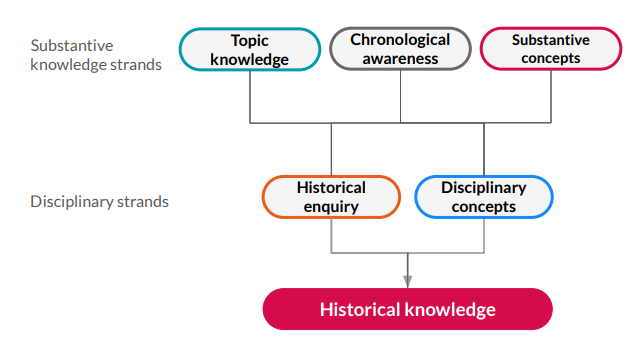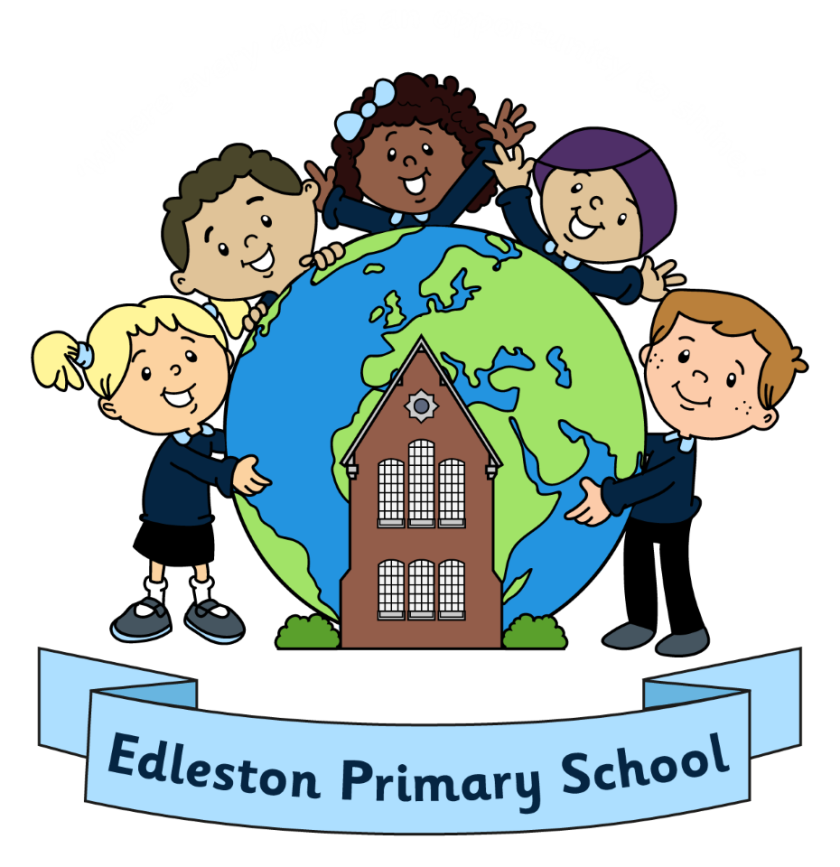History
Vision
At Edleston Primary we believe that History makes a valuable and distinctive contribution to pupils’ education developing better informed, tolerant and respectful young people. Learning about the past and the methods used to study sources and draw conclusions helps pupils understand and contribute to the world in which they live. We aim to build a sense of chronology from the earliest times to present day.
Intent
Our curriculum aims to:
- develop enquiry skills to pursue their own interests within a topic and further question the events of the past.
- help pupils develop a sense of identity through learning about their family, the development of their community, Britain, Europe and the world.
- develop a range of skills necessary for historical enquiry and interpretation.
- arouse an interest in the past and an appreciation of how historical events have shaped their own community, locality and the rest of the world that they currently live in.
- to build an awareness of significant events and individuals in global, British and local history and recognise how things have changed over time.
- to appreciate the complexity of people’s lives, the diversity of societies and the relationships between different groups.
- acquire a chronological structure and language in order to provide a frame-work for understanding the past.
- understand the difference between the past and present and that people of other times and places may have held different values and attitudes from ours.
- begin to understand the concepts of ‘past’ and ‘future’.
- For children to be introduced to the particular language of historical periods and to a range of historical concepts appropriate to their level of study, including power, invasion, settlement and migration, empire, civilisation, religion, trade, achievements of humankind, society and culture.
- To develop a knowledge and understanding of the links between history and other subjects within the curriculum and cross-curricular elements.
- To understand that evidence from the past can be interpreted in different ways.
Implementation
The teaching of History is organised through termly units developed from the Kapow History scheme of work, plus whole school themed weeks of Remembrance and Local History. Content shows a balanced coverage and an enquiry-based approach to teaching and learning. Across each Key Stage, pupils are provided with a variety of experiences both in and out of the classroom where appropriate to create memorable learning opportunities, foster curiosity and enthusiasm for history, and to further support and develop their understanding.
History is made up of the following identified key strands which are interwoven through all units of learning. Each unit has a focus on chronology to allow children to explore the place in time of the period they are studying and make comparisons in other parts of the world.

EARLY YEARS FOUNDATION STAGE
This is the earliest opportunity to introduce pupils to the vocabulary of History. Children explore the concept of history by reflecting on key experiences from their own past, helping them understand that they each have their own histories. Then, they engage in activities to compare and contrast characters from stories, including historical figures, deepening their understanding of how individual lives fit into broader historical narratives. There are two EYFS units focused on each of the history-related Development matters statements. These units consist of a mixture of adult-led and child-initiated activities selected by the teacher to fit in with Reception class themes.
In Key stage 1 and 2, units are organised around an enquiry-based question and children are encouraged to follow the enquiry cycle (Question, Investigate, Interpret, Evaluate and conclude, Communicate) when answering historical questions. Over the course of the scheme, children develop their understanding of the following key disciplinary concepts:
• Change and continuity.
• Cause and consequence.
• Similarities and differences.
• Historical significance.
• Historical interpretations.
• Sources of evidence.
Substantive concepts such as power, trade, invasion and settlement, are introduced in Key stage 1, clearly identified in Lower key stage 2 and revisited in Upper key stage 2 (see Progression of skills and knowledge) allowing knowledge of these key concepts to grow. These concepts are returned to in different contexts, meaning that pupils begin to develop an understanding of these abstract themes which are crucial to their future learning in History.
The Kapow scheme follows the spiral curriculum model where previous skills and knowledge are returned to and built upon. For example, children progress by developing their knowledge and understanding of substantive and disciplinary concepts by experiencing them in a range of historical contexts and periods.
KEY STAGE 1
During Key Stage 1, pupils will further develop their awareness if the past and will learn about people’s lives and lifestyles fit into a chronology. They will find out about significant men, women, children and events from the recent and more distant past, including those from the local area, Britain and the wider world. They will listen and respond to stories and use sources of information to help them ask and answer questions. They will learn how the past is different from the present. Pupils will develop an awareness of the past, using common words and phrases relating to the passing of time. They will learn where the people and events they study fit within a chronological framework and identify similarities and differences between ways of life in different periods. They will ask and answer questions, choosing and using parts of stories and other sources to show that they know and understand key features of events. They will understand some of the ways in which we find out about the past and identify different ways in which it is represented.
KEY STAGE 2
In Key Stage 2, pupils continue to develop a chronologically secure knowledge and understanding of British, local and world history, establishing clear narratives within and across the periods they study. They will note connections, contrasts and trends over time and develop the appropriate use of historical terms. They will regularly address and sometimes devise historically valid questions about change, cause, similarity and difference, and significance. They will construct informed responses that involve thoughtful selection and organisation of relevant historical information. They will understand how our knowledge of the past is constructed from a range of sources.
Impact
Our history curriculum ensures that children draw their own conclusions about the past, based on evidence, imagination and questioning and present their ideas in a variety of forms, including drama, poetry and display and sustained writing in different forms. Children develop and embed knowledge of historical events, an understanding of chronology and an appreciation of the impact that history has on the modern world. Our children enjoy and love learning about history by gaining knowledge and skills, not just through high quality learning in the classroom, but also through a varied and well-sequenced selection of educational visits and visitors.
The impact of Kapow Primary’s scheme can be constantly monitored through both formative and summative assessment opportunities. Quizzes within lessons provides evidence of pupil knowledge retention from within the current unit of work, the latest unit and the past year.
Pupils are able to talk with confidence and enthusiasm about their learning in history using subject specific vocabulary, making links and comparisons between periods of time and how they have shaped their lives today and will impact on the future. Pupil voice shows that many pupils enjoy history and are able to recall their learning over time.
Pupils should leave school equipped with a range of skills to enable them to succeed in their secondary education. They will be enquiring learners who ask questions and can make suggestions about where to find the evidence to answer the question. They will be critical and analytical thinkers who are able to make informed and balanced judgements based on their knowledge of the past. The expected impact is that children will:
● Know and understand the history of Britain, how people’s lives have shaped this nation and how Britain has influenced and been influenced by the wider world.
● Develop an understanding of the history of the wider world, including ancient civilisations, empires, non-European societies and the achievements of mankind.
● Develop a historically-grounded understanding of substantive concepts - power, invasion, settlement and migration, civilisation, religion, trade, achievements of mankind and society.
● Form historical arguments based on cause and effect, consequence, continuity and change, similarity and differences.
● Have an appreciation for significant individuals, inventions and events that impact our world both in history and from the present day.
● Understand how historians learn about the past and construct accounts.
● Ask historically-valid questions through an enquiry-based approach to learning to create structured accounts.
● Explain how and why interpretations of the past have been constructed using evidence.
● Make connections between historical concepts and timescales.
● Meet the relevant Early Learning Goals at the end of EYFS (Reception) and the end of key stage expectations outlined in the National curriculum for History at the end of Key stage 1 and 2.
